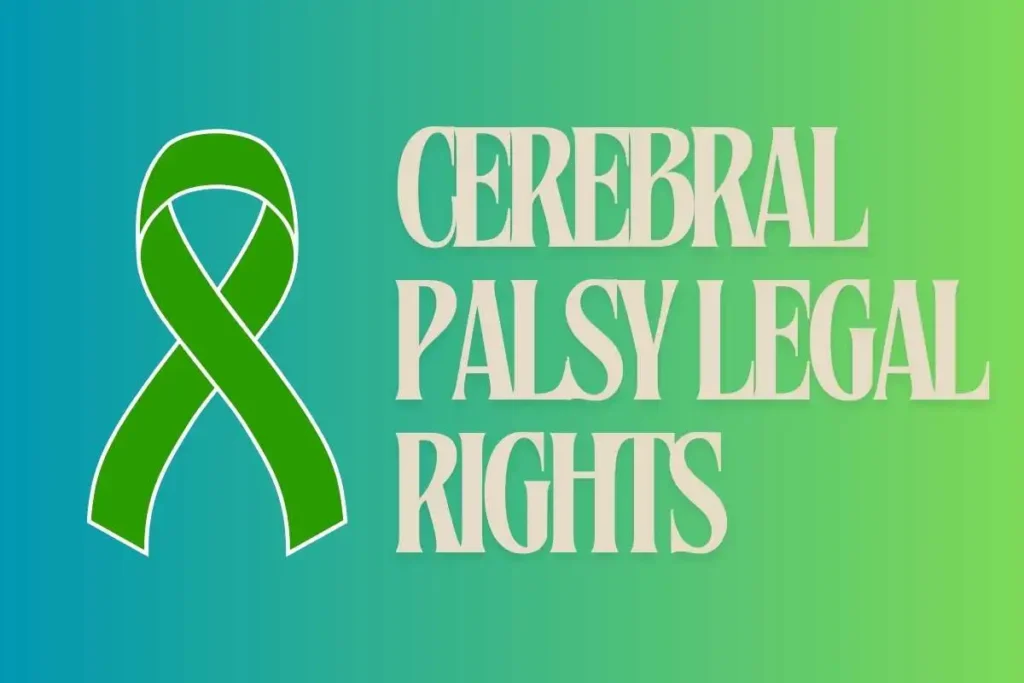Cerebral palsy (CP) presents unique challenges, but you don’t have to face them alone. Legal rights empower those with CP to access the resources and support they deserve. This guide dives into the world of Cerebral Palsy legal rights, exploring protections, potential avenues for compensation, and the path to a brighter future. Whether you or a loved one has CP, understanding these rights is the first step toward ensuring a life filled with opportunity and dignity.
Cerebral palsy is a neurological disorder that affects a person’s ability to control their muscles and movements. It is a lifelong condition that can have a significant impact on a person’s quality of life. Individuals with cerebral palsy have legal rights that protect them from discrimination and ensure they receive appropriate treatment and care.
Legal Protections
The Americans with Disabilities Act (ADA) is a federal law that prohibits discrimination against individuals with disabilities, including cerebral palsy. This law ensures that individuals with cerebral palsy have equal access to education, employment, and public services. It also requires employers to make reasonable accommodations for employees with disabilities.
The Individuals with Disabilities Education Act (IDEA) is another federal law that protects the rights of children with disabilities, including cerebral palsy. This law requires schools to provide special education and related services to children with disabilities to help them achieve their educational goals.
Legal Remedies
If an individual with cerebral palsy believes their legal rights have been violated, they may be able to take legal action. This may involve filing a complaint with the appropriate government agency or filing a lawsuit. Legal remedies may include compensation for damages, such as medical expenses or lost wages, and injunctive relief, which requires the defendant to stop the discriminatory behavior.
By advocating for themselves and seeking legal remedies, individuals with cerebral palsy can ensure they receive the care and treatment they deserve.
Education and Cerebral Palsy
Children with cerebral palsy have the right to receive an education that meets their unique needs and enables them to achieve their full potential. The Individuals with Disabilities Education Act (IDEA) is a federal law that ensures children with disabilities, including cerebral palsy, have access to a free appropriate public education (FAPE) in the least restrictive environment possible.
Individuals with Disabilities Education Act (IDEA)
The Individuals with Disabilities Education Act (IDEA) is a federal law that governs how states and public agencies provide early intervention, special education, and related services to children with disabilities. IDEA was first passed in 1975 and has been amended several times since then. The most recent amendments were made in 2004.
IDEA provides a framework for the delivery of special education and related services to children with disabilities, including cerebral palsy. Under IDEA, children with disabilities are entitled to an individualized education program (IEP) that is tailored to their unique needs and ensures they receive a FAPE.
Free Appropriate Public Education (FAPE)
Free Appropriate Public Education (FAPE) is a cornerstone of IDEA. FAPE means that children with disabilities, including cerebral palsy, are entitled to an education that is appropriate for their unique needs and is provided at public expense. Schools must provide special education and related services to children with disabilities at no cost to the parents.
Individualized Education Program (IEP)
An Individualized Education Program (IEP) is a written plan that outlines the educational services and supports that a child with cerebral palsy will receive. The IEP is developed by a team that includes the child’s parents, teachers, and other professionals. The IEP must be reviewed and updated at least once a year.
The IEP must include specific goals and objectives for the child’s education, as well as the services and supports that will be provided to help the child achieve those goals. The IEP must also include accommodations and modifications that will be made to the curriculum and the child’s learning environment to ensure that he or she can participate in the general education curriculum to the fullest extent possible.
Employment and Anti-Discrimination Laws
Individuals with cerebral palsy have legal rights to protect them from discrimination in the workplace. Two important legal protections for individuals with disabilities are the Americans with Disabilities Act (ADA) and workplace accommodations.
Americans with Disabilities Act (ADA)
The Americans with Disabilities Act (ADA) is a federal law that prohibits discrimination against individuals with disabilities in all areas of public life, including employment. Under the ADA, employers are required to provide reasonable accommodations to employees with disabilities, unless doing so would cause an undue hardship to the employer.
The ADA defines a disability as a physical or mental impairment that substantially limits one or more major life activities. Cerebral palsy is considered a disability under the ADA, and individuals with cerebral palsy are protected from discrimination in the workplace.
Workplace Accommodations
Reasonable accommodations are changes to the work environment or job duties that allow individuals with disabilities to perform their job duties. Employers are required to provide reasonable accommodations to employees with disabilities unless doing so would cause an undue hardship to the employer.
Examples of workplace accommodations for individuals with cerebral palsy may include:
- Providing a wheelchair-accessible workspace
- Modifying work hours or providing a flexible schedule
- Providing assistive technology or ergonomic equipment
- Modifying job duties or providing additional training
Individuals with cerebral palsy need to know their legal rights and advocate for themselves in the workplace. Employers are required to provide reasonable accommodations to employees with disabilities, and discrimination based on disability is illegal under the ADA.







